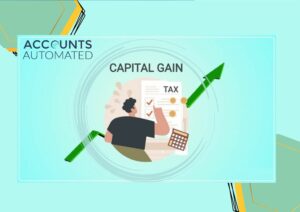As the financial year 2022 draws to a close, it is an ideal time to make sure you are ready to enter the tax season. Time is of great essence here as failure to meet the deadline can have serious repercussions. So, you better get started and tick off everything on the list in order to get through the financials seamlessly this year.
Let’s get straight to the points then:
Recalculate the aggregated turnover
Base rate entity corporate tax has decreased from 26% to 25 % for companies that have an aggregated turnover of less than $50m with passive income constituting no more than 80% of the total income. This will be applicable to the financial year 2022. For companies that do not meet the criteria, the tax rate will be 30%.
This might not be as simple as it looks. If your company’s aggregated turnover is nearing $50, make sure you recalculate as the month ends as you may be eligible for a higher corporate tax rate for this financial year. Likewise, companies that might have had an aggregated turnover exceeding $50m and suffered from any reduction in turnover might qualify for a reduced tax rate.
Expensing of eligible assets
Companies with an aggregated turnover of less than $5b qualify for the immediate deductions on the eligible newly acquired depreciating assets. Terms for temporary full expensing of eligible assets for businesses include:
- Businesses with a turnover under $50m, second-hand assets also apply
- Businesses with a turnover between $50m to $5b the asset ought to be newly acquired
P.S these deductions do not apply to assets outside the territory of Australia.
Cross-check for June’s additional tax deductions
As the financial year is about to end, make sure you have stocked up on things you might need for the year and have them cross-checked for claimable tax deductions. These may include:
- Consumables which may include/are not limited to printing essentials, office supplies including stationery, etc.
- Accrued expenditure which can comprise business loan interests, sale personnel commissions, bonuses, salary, wages, and utility accounts.
- Trading stock, make sure to complete the final inventory check just before the EOFY deadline to separate the obsolete stock and identify if any of the current stock was bought at a higher price than its current market value.
- Prepayments can qualify for tax deductions in cases where the company’s aggregated turnover is less than $50m and the repayment period is under 12 months.
Exclude work-in-progress payments
For advanced payments, the tax deductions do not apply unless the invoice is raised after the completion of the service.
Many new businesses especially the small ones might not know about such financial nuances. Either allocate them to a liability account or have them adjusted for in the tax return.
Review the company’s expected tax liability
ATO generally assumes that businesses improve in terms of profit every financial year. Companies that suffer from a decrease in their profit can cost an additional installment on PAYG installments (usually paid out throughout the financial year). While overpayment can easily be adjusted for later, an additional installment might be a little hefty on the company’s finances. Review the company’s expected tax liability to make sure that your company is well prepared monetarily.
Review all the loans and payments
Loans and payments made by private companies to the shareholders come under the ambit of assessable income as stated in the Provisions of Division 7A. Review all the loans and payments made within this financial year and check if there is a possibility of repayment before the EOFY deadline approaches. For the current financial year’s loan with a complying loan agreement, make sure to get the hold of the minimum loan repayment before 30th June.
Review Trust Deed requirements
For the next year, it is expected from the trustees to provide a proper plan of how the funds are to be distributed before 30th June. So, make sure you go through the Trust Deed requirements and ATO guidance on the subject before the EOFY to avoid inconveniences.
Review assets for Capital Gains Tax
As the capital gains tax applies on the contract date for selling the real estate assets or shares, reviewing them before EOFY is a must. Ensure that you are clear on whether a certain share or real estate asset would come under the previous financial year’s window or the one that follows it. Only then you can have the true picture of your capital gains tax.
Summing up
Reevaluating all your financials before the EOFY can be a tough nut to crack. Make sure you tick off all the aforementioned boxes and we are sure you’d do just fine this year.
Haven’t gotten the knack for it? Worry not, book a free consultation with us if we aren’t helping you already!

